Subject Leader
The subject leader for Personal Social Health Education (PSHE) is our Deputy Headteacher Miss Fishburn.
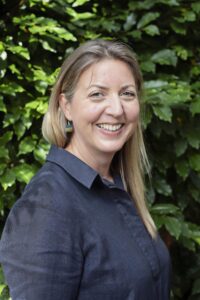

She can be contacted by emailing admin@stpeters.ycway.uk using the subject title FAO of followed by the name of the subject leader. Emails typically receive a reply within 2-3 working days. Please note most of our subject leaders have a full-time teaching commitment.
With oversight and support from our Senior Leadership team subject leaders oversee and monitor the intent, implementation and impact of their subject.
Curriculum Development
Intent – The ambition and principles of our curriculum for our children. The curriculum content we expect children to learn. What we expect children to know.
Implementation – How the intentions are realised. The sequence and strategies used to ensure children know and remember more. There is additional information on our curriculum page.
Impact – How we check and see if children know what we expect them to and how we help them further if needed. How knowledge and skills learnt improved and enriches their lives socially, emotionally, spiritually as well as academically.
Subject Rationale
Although Personal, Social, Health and Economic Education (PSHE) is not part of the National Curriculum, it is still taught within school. The Relationships Education, Relationships and Sex Education and Health Education (England) Regulations 2019, made under sections 34 and 35 of the Children and Social Work Act 2017, make Relationships and Health Education compulsory for all pupils.
The statutory requirements and aims for PSHE are that “All schools should make provision for PSHE, drawing on good practice. Schools are also free to include other subjects or topics of their choice in planning and designing their own programme of education.”
We believe that PSHE is an important and necessary part of pupils’ education and essential for their emotional wellbeing and growth. We believe that PSHE help our pupils foster lifelong aspirations, goals, and values. Therefore, the curriculum has been devised into three main themes of Relationships, Health and Wellbeing and Living in the Wider World and is a question-based curriculum supported by resourced developed by experts at the PSHE Association. This learning empowers pupils to take a proactive role in their own lives and the life of their community. From helping them to deal with critical issues they face every day such as friendships, emotional wellbeing and change, to giving them a solid foundation for whatever challenging opportunities lie ahead, so they can face a world full of uncertainty with hope. Our aim is to equip children with skills and knowledge that will enable them to grow and become independent, confident, and active learners and citizens and equip them to make the right decisions to stay healthy, safe and prepared for life and work in modern Britain.
Quality First Curriculum
Quality first curriculum implementation in PSHE and RSE supports children in becoming secure, and fluent in the identified agreed core knowledge and skills in relationship education. Fluency and security in core knowledge allow children to explore concepts in greater depth exploring and evaluating concepts and ideas enabling children to articulate informed responses about positive relationships.
At St Peter’s the journey to becoming a happy, successful, and productive members of society begin in the Early Years. Our youngest children learn about relationships within the EYFS area of learning known as ‘Personal, Social and Emotional Development’ and ‘Understanding the world’. The objectives are set out in the Early Learning Goals which underpin the curriculum planning of children aged between three and five years old. These will be led by the children’s interest and the ‘here and how’ gained from the observation, assessment, and planning cycle. Common themes used in EYFS include “Ourselves” and “People who help us”.
By the time children reach the end of Year Six they will have a secure understanding of the characteristics of developing and maintaining good physical health and mental wellbeing. They will understand the benefits and importance of daily exercise, good nutrition, and sufficient sleep, and will have the language and knowledge to understand the normal range of emotions that everyone experiences. Children will be able to articulate how they are feeling, through the development of language to talk about their bodies, health, and emotions and to judge whether what they are feeling and how they are behaving is appropriate and proportionate for the situations that they experience.
Our children will have experienced several opportunities to enhance their understanding of positive relationships within the local community. Our children will have developed a greater understanding and tolerance of, and respect for the diverse communities that they are part of.
Relating Development Matters Learning
PSED (Personal, Social and Emotional Development)
Understanding the World
Subject Sequence and Knowledge Progression
The documents below outline in more detail the sequence children will follow in relation to PSHE and the progression of knowledge. Our curriculum is developed using gudiance and advice from the experts in primary PSHE at the PSHE Association.

Knowledge Organisers Examples
To help children secure the intended knowledge we are developing a range of child friendly knowledge organisers to support our curriculum implementation. Some examples are attached below.
Knowledge Organiser – Upper KS2 Keeping Healthy as We Grow
Knowledge Organiser PSHE – How can friends communicate safely
PSHE Y4&5 Money Knowledge Organiser
Y3&4 friends Knowledge Organiser
Impact Examples
The PSHE curriculum provides our children with knowledge and skills to improve and enrich their lives socially, emotionally, spiritually as well as academically. We are pleased to share some examples of this below.
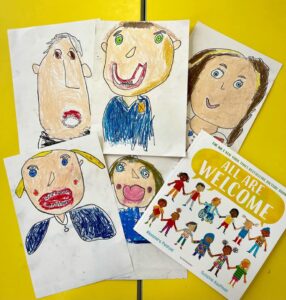
At the start of the year the whole school used the book ‘All Are Welcome’ to reflect upon diversity and difference and consider how we make our school an inclusive and welcoming place for all.
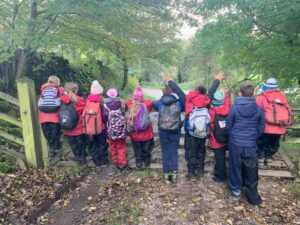
Through outdoor learning including residential visits children have the chance to develop personal and social skills including working effectively as a team and challenging themselves.
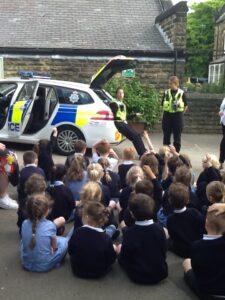
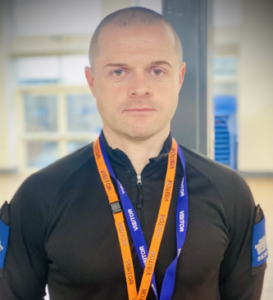
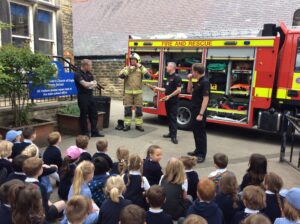
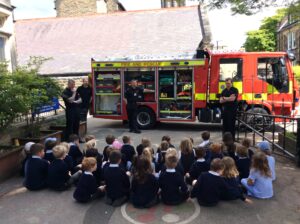
We work closely with a number of agencies including the emergency services to help ensure our children learn from a range of different people how to keep themselves safe in different situations.
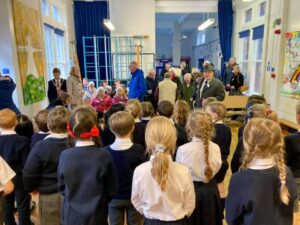
We are proud to take an active role in our local community learning to make positive contributions to help others including singing to local residents at the opening of the newly refurbished Alms houses.
